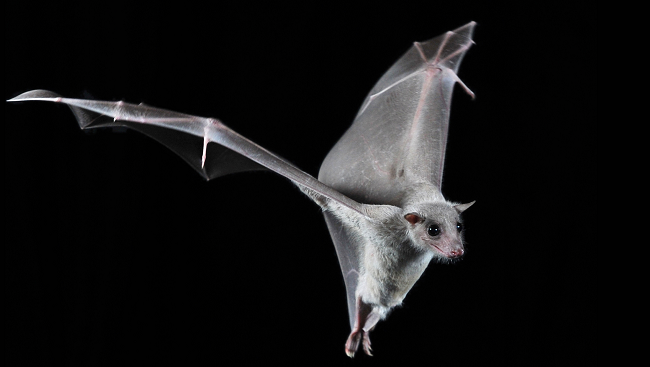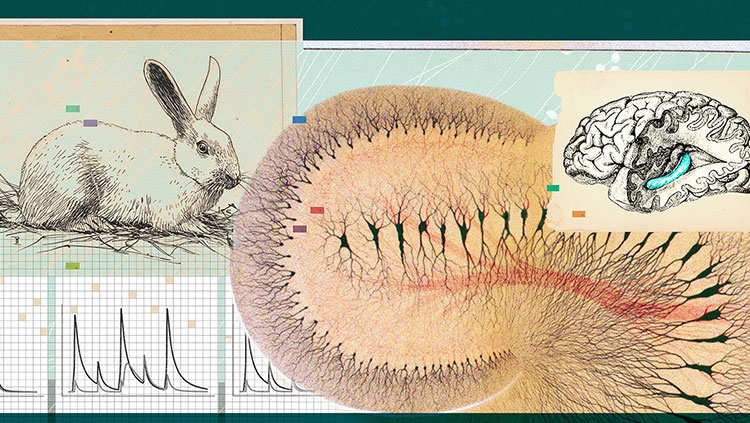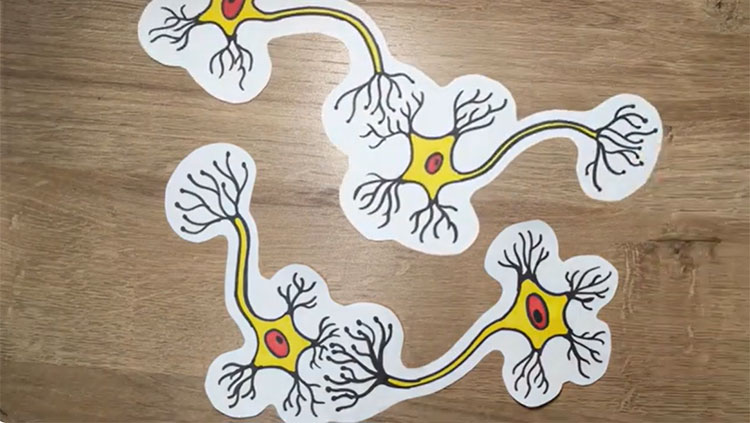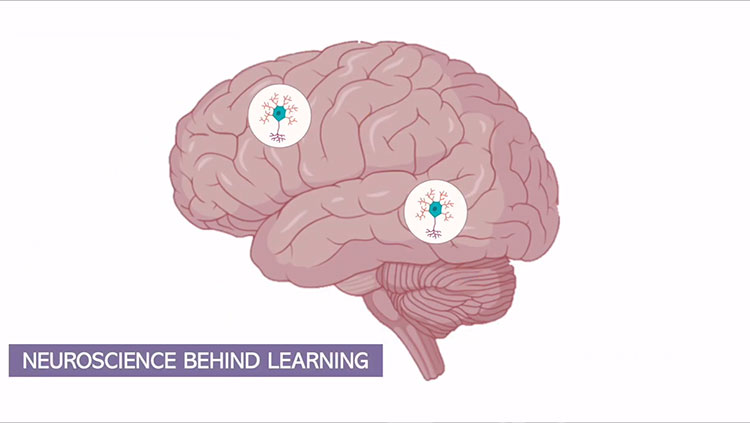Mapping Your Next Meal
- Published4 Apr 2014
- Reviewed4 Apr 2014
- Author Michael W. Richardson
- Source BrainFacts/SfN

Egyptian fruit bats, like the one above, have an extraordinary sense of navigation. Every night, they fly dozens of miles from their cave to their favorite fruit tree and back again, repeating the same trip night after night. But how do they find their way?
Similar to the brains of people, bat brains contain a number of specialized neurons — including place cells, grid cells, and head-direction cells — that help them create, remember, and navigate mental maps of space. Studying how these cells work in flying bats provides researchers with new insights about how this mapping process works in mammals — including humans — and may one day turn our understanding of navigation upside-down.
CONTENT PROVIDED BY
BrainFacts/SfN
Also In Learning & Memory
Trending
Popular articles on BrainFacts.org


















